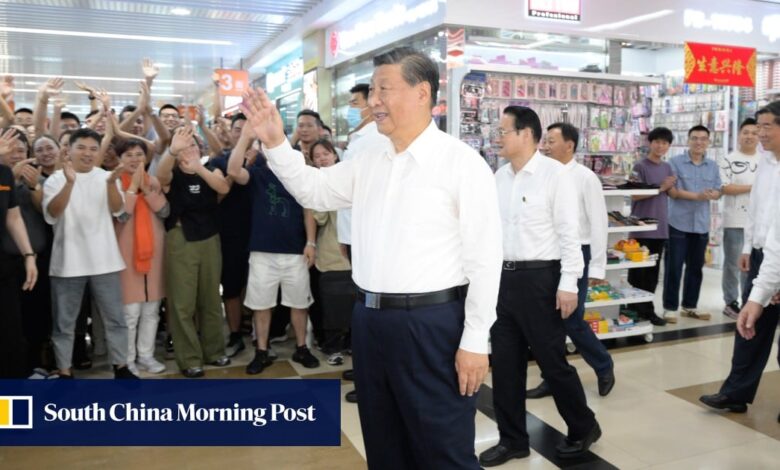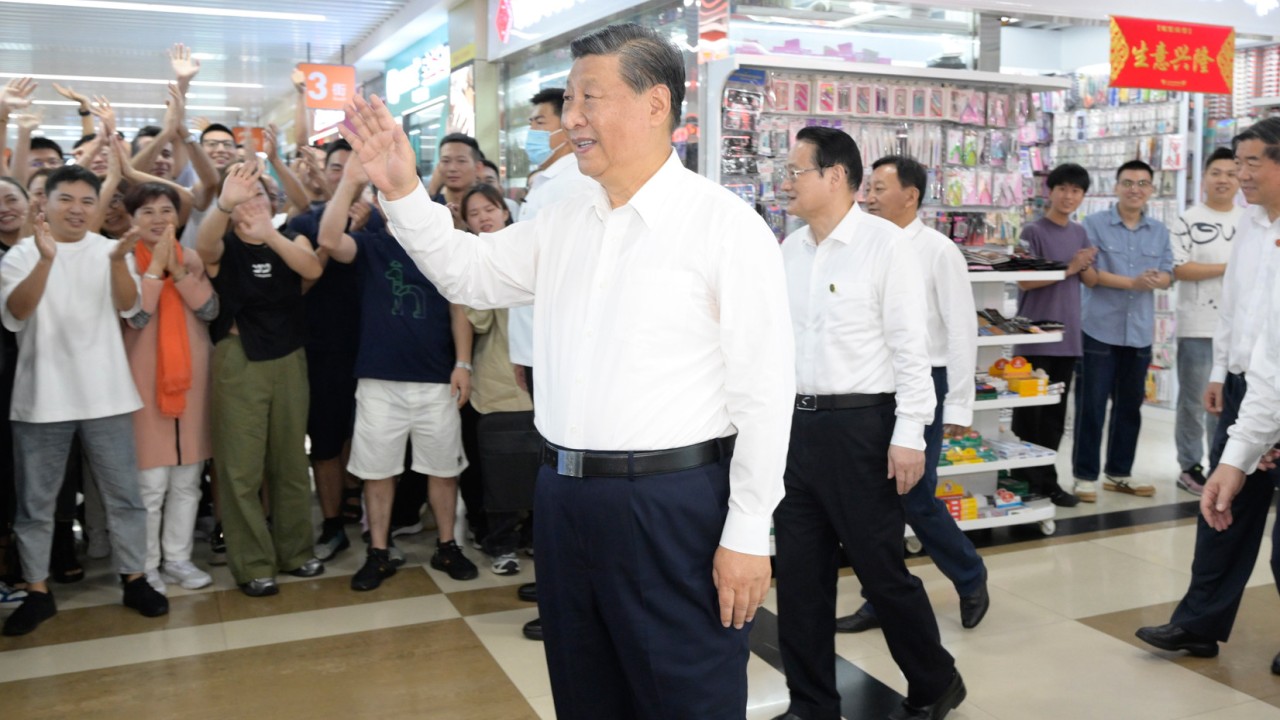China’s vows to further open up appear to show how political motivations are changing in Beijing

[ad_1]

But scepticism remains over how far policymakers will go ahead of the widely anticipated third plenum of the Communist Party later this year – a gathering that typically focuses on economic issues.
At Wednesday’s Politburo study session dedicated to the rules of the World Trade Organization (WTO) and its reform, Xi acknowledged the benefits of the country’s participation in the international economic organisation. He pledged to further open up while making only a brief mention of security, according to an official meeting readout released by Xinhua.
This has sent a strong signal that the leadership is prioritising growth amid increasing concerns over Beijing’s emphasis on external and domestic security, according to policy advisers and experts in Chinese politics and economics.
China’s Xi Jinping appeals to decades-old mantra of reform, eyeing economic jolt
China’s Xi Jinping appeals to decades-old mantra of reform, eyeing economic jolt
“Xi’s latest, clearest assurance about the overarching task of economic development will help assuage concerns arising from the previous emphasis on security and anti-espionage laws,” said Wang Huiyao, founder of the Centre for China and Globalisation, a Beijing-based non-governmental think tank.
It could lead to stronger measures being rolled out at the upcoming plenum to prop up the weakening economy, as the themes of Politburo study sessions are traditionally an important sign for what’s to come, he said.
Calling China’s 2001 joining of the WTO an “absolutely correct decision” and “a milestone in China’s opening up”, Xi said at Wednesday’s meeting that the country’s trade volume has grown elevenfold in the past two decades, adding this has benefited the rest of the world, in turn.
While dedicating most of his speech to calls for a higher level of opening up, as well as free trade and multilateralism, he briefly mentioned that China “should, at the same time, maintain national economic security”, according to Xinhua.
China’s top leadership has this tradition of putting emphasis on certain matters by holding study sessions
A Beijing-based government policy adviser, speaking on condition of anonymity, said Xi’s comments appear to reflect a growing sense of urgency to stimulate economic growth.
“China’s top leadership has this tradition of putting emphasis on certain matters by holding study sessions,” the adviser said. “From the tone, we can see that they are basically in favour of an outward-looking economy.”
Wang, the think tank founder, said Xi’s comments could also help dispel the once-prevalent theory that China’s economic achievements are the result of its own work and have nothing to do with the outside world.
“It’s quite significant, especially [as] the remarks were made just days after Xi’s inspection of Yiwu of Zhejiang, a major trading hub, where he said international trade was vital and reiterated the role of reform and opening up.”
No Christmas cheer for China’s exports despite August’s marginal improvement
No Christmas cheer for China’s exports despite August’s marginal improvement
Zhu Feng, deputy dean of Nanjing University’s School of International Studies, said the president’s latest remarks were pro-business, pro-economy, and a declaration that economic development also matters for security.
“Xi has, all along, stressed balancing development and security,” Zhu said. “The root cause of China’s economic malaise is not the lack of any stimuli. The top leadership will need to launch concrete reforms at the upcoming plenum to signal their resolve.”
The statements have come as confidence in China’s growth remains weak, with investors growing increasingly wary of expanding their China footprint due to a raft of concerns.
“Foreign firms are becoming less confident, partly because of the stiffer competition they face in China and having to adapt to that competition and changing landscapes,” said Lu Xiang, a senior researcher with the Chinese Academy of Social Sciences.
Alongside their persistent complaints about an uneven playing field, foreign firms in China have rankled under other pressures in recent years, including from disruptive zero-Covid controls and uncertainties induced by anti-espionage and data-security laws.
[ad_2]
Source link





